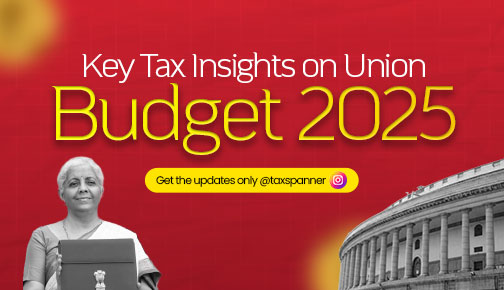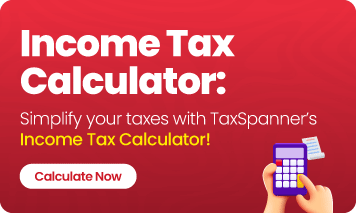Tax Collected at Source (TCS): Meaning, Examples, GST Applicability, and How to Claim It Effectively
Tax Collected at Source (TCS) is a crucial concept under the Indian Income Tax Act, designed to make sure tax compliance and streamline revenue collection. While it primarily impacts businesses and traders, understanding TCS is essential for anyone involved in high-value transactions or specific goods. In this blog, we’ll dive deep into the meaning of tax collected at source, its applicability under GST, examples, and how to claim it effectively.
What is Tax Collected at Source (TCS)?
Tax collected at source meaning refers to the tax collected by the seller from the buyer at the time of sale of specified goods or services. Governed by Section 206C of the Income Tax Act, 1961, TCS is applicable on certain transactions, such as the sale of scrap, minerals, timber, tendu leaves, and motor vehicles exceeding Rs. 10 lakh.
The seller, who is responsible for collecting the tax, must deposit it with the government. The buyer, on the other hand, can claim this amount as a credit while filing their income tax returns. This mechanism ensures that the government receives tax revenue upfront, reducing the chances of tax evasion.
Key Details of Tax Collected at Source
Who Can Collect TCS?
Only specific sellers are authorized to collect TCS. These include:
- Central and State Governments
- Local authorities
- Companies registered under the Companies Act
- Partnership firms and co-operative societies
- Individuals or HUFs subject to tax audit
When is TCS Collected?
TCS is collected at the earlier of the following two events:
- When the seller debits the buyer’s account.
- When the seller receives payment from the buyer (in cash, cheque, draft, or any other mode).
TCS Rates for Specific Goods
The tax collected at source rate varies depending on the type of goods or transaction. Here are some examples:
- Scrap, minerals, and liquor: 1%
- Timber and tendu leaves: 2.5% to 5%
- Motor vehicles exceeding Rs. 10 lakh: 1%
- Foreign remittances under LRS (Liberalized Remittance Scheme): 20% (5% for education and medical expenses)
Tax Collected at Source Under GST
The tax collected at source under GST applies to e-commerce operators. If you’re a seller on platforms like Amazon or Flipkart, the e-commerce operator deducts 1% TCS (0.5% CGST + 0.5% SGST) before making payments to you. This provision, effective from October 1, 2018, guarantees that online transactions are also brought under the tax net.
Example: If you sell goods worth Rs. 50,000 on an e-commerce platform, the operator will deduct Rs. 500 as TCS and pay you Rs. 49,500.
How to Claim Tax Collected at Source
One of the most common questions is, ‘Is tax collected at source refundable?’ The answer is yes! Buyers can claim the TCS amount as a credit while filing their income tax returns. Here’s how:
- Collect Form 27D: The seller must provide this TCS certificate, which contains details like the amount collected, rate of tax, and date of collection.
- Include TCS in Your Tax Return: While filing your ITR, include the TCS amount under the appropriate section.
- Adjust Against Tax Liability: The TCS amount can be adjusted against your total tax liability. If the TCS exceeds your liability, you can claim a refund.
Example: If you purchased a car worth Rs. 15 lakh, the seller collected Rs. 15,000 as TCS. While filing your ITR, you can claim this Rs. 15,000 as a credit against your tax liability.
Deduction and Collection of Tax at Source: TCS vs. TDS
While TCS and TDS (Tax Deducted at Source) are both mechanisms to collect tax at the source, they differ in their applicability:
- TCS is collected by the seller from the buyer during the sale of specified goods.
- TDS is deducted by the payer (e.g., employer) from the payee (e.g., employee) on income like salary, interest, or commission.
Practical Example of Tax Collected at Source
Let’s take a tax collected at source example to understand it better.
Scenario: Mr. Sharma buys timber worth Rs. 2 lakh from a forest-leased seller.
- TCS Rate: 2.5%
- TCS Amount: Rs. 5,000
- Total Payment: Rs. 2,05,000
The seller collects Rs. 5,000 as TCS and deposits it with the government. Mr. Sharma receives Form 27D and can claim this Rs. 5,000 as a credit while filing his ITR.
Tips to Effectively Manage TCS
Maintain Proper Records
Keep all invoices and TCS certificates (Form 27D) safely.
File Returns on Time
Sellers must file quarterly TCS returns (Form 27EQ) and issue TCS certificates within the due dates.
Claim TCS Credits
Buyers should ensure they claim TCS credits while filing their ITR to avoid double taxation.
Stay Updated on Rates
TCS rates and provisions may change, so stay informed about the latest updates.
In conclusion, understanding tax collected at source is essential for both sellers and buyers. Whether you’re a business owner collecting TCS or a consumer claiming it as a credit, knowing the details of tax collected at source can help you stay compliant and optimize your tax liabilities. From its applicability under GST to the refund process, TCS plays a vital role in the Indian tax ecosystem. By following the guidelines and maintaining proper documentation, you can effectively manage TCS and ensure a smooth tax filing experience.
If you have any doubts or need assistance with TCS compliance, feel free to consult the experts at TaxSpanner. We’re here to make taxation simple and stress-free for you!
Explore TaxSpanner's wide range of calculators for your tax planning and calculations!
View Tools & Calculators





